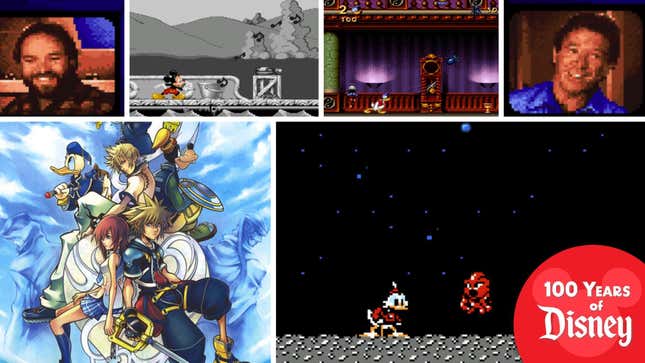
You can’t tell the history of video gaming without talking about Disney. Whether simply licensing its frankly overwhelming catalog of brands to other developers, or getting into games game on its own—as it has with periodic bouts of interest from the late ’80s onwards—no other company is more widely represented in the hobby; there are plenty of “actual” video game companies that have made 10, 30, even 50 times fewer games than the House Of Mouse has over its decades of meddling in the medium. Even discounting games that were simply developed by one of Disney’s subsidiaries, and launched without any connection to an existing property, there are still literally hundreds of Disney-based games out there, ranging from the old Tron game that ruled in arcades back in 1982, all the way up to releases on modern consoles today.
Many of these games were, of course forgettable; that’s just the law of averages at play. But some of them have been exceptional—genuinely great games that made the most of a beloved brand. And some of them, to put none too fine a point on it, have been weird: Oddball experiments that tapped into that obsessive gene that turns otherwise normal people into secret Disney maniacs. And so, in honor of the company’s nigh-overwhelming contribution to and/or control of the industry: A look back at five of the best, and five of the weirdest, Disney titles in the gaming canon.
As Disney celebrates its 100th anniversary this year, The A.V. Club marks the occasion with a series of lists, essays, and more.